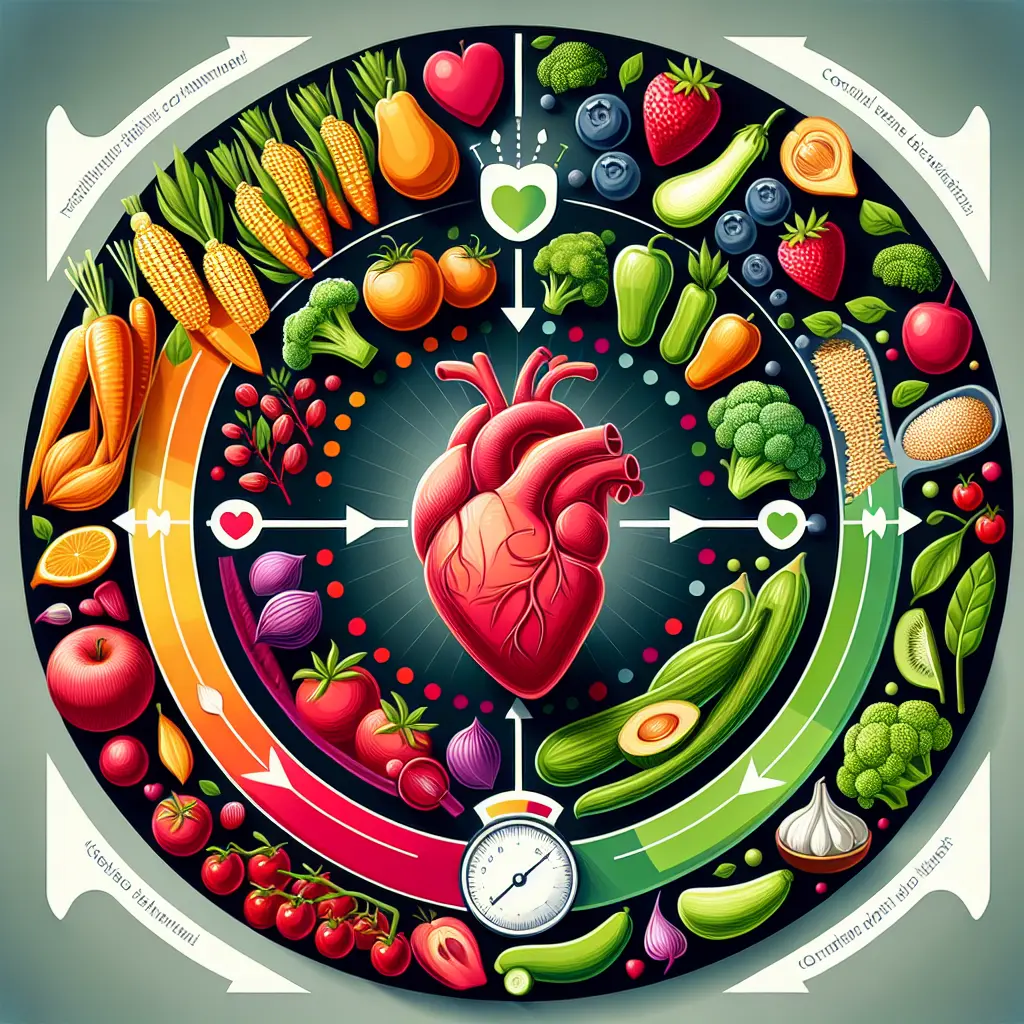
In recent years, the shift towards plant-based diets has gained significant traction not just as a lifestyle trend but as a key factor in promoting cardiovascular health. A growing body of research underscores the myriad benefits of plant-based nutrition, particularly in terms of heart disease prevention and achieving a cholesterol-lowering diet. This deep dive into the realm of vegan and vegetarian diets reveals how integral they are to maintaining cardiovascular wellness.
The Confluence of Progress and Heritage
While modern science continues to advocate for heart-healthy vegan diets, it's interesting to note how these dietary practices align with age-old eating habits. Our ancestors predominantly consumed plant-based foods, rich in fibers, antioxidants, and healthy fats, which naturally supported heart health. Today, this blend of historical wisdom and contemporary research guides our understanding of a balanced diet's role in reducing heart disease risk.
Understanding Plant-Based Diets and Cardiovascular Health
Plant-based diets encompass a variety of food intake patterns that prioritize fruits, vegetables, nuts, seeds, oils, whole grains, legumes, and beans. Decades of research have highlighted that such diets are linked with lower levels of cholesterol, blood pressure, and blood sugar. One reason is the significantly lower levels of saturated fats found in plants compared to animal products, which directly correlates with improved heart health (Source: American Heart Association).
Vegetarian Cardiovascular Benefits and Vegan Heart Health
A study published in the Journal of the American Heart Association found that adherents to a vegetarian diet have a 32% lower risk of hospitalization or death from heart disease than their meat-eating counterparts. Similarly, vegans also tend to have healthier heart profiles, a fact attributed to their diet that is typically lower in cholesterol and saturated fats while being high in fiber and plant nutrients (Source: JAMA Internal Medicine).
Cholesterol Lowering Diet: Plant-Based Foods for Heart
Foods like oats, barley, peas, beans, lentils, and certain fruits and vegetables are particularly effective in managing cholesterol levels. The soluble fiber found in these foods helps lower bad cholesterol (LDL) by interfering with its absorption in the bloodstream. Moreover, the incorporation of nuts and seeds contributes to maintaining healthy blood vessels (Source: Mayo Clinic).
Dietary Impact on Heart Health
Recent findings highlight that simple dietary swaps can bolster heart health significantly. Incorporating plant-based foods into one's diet can help manage weight, reduce inflammation, and enhance blood lipid profiles. Notably, the introduction of innovative plant-based products like Green Moong Bean Burger Buns can transform traditional meals into heart-healthy options without sacrificing flavor or satisfaction.
The Global Embrace of Plant-Based Eating
Worldwide dietary trends show a surge in the adoption of veganism and vegetarianism. For instance, the recent earnings report from William Hill owner Evoke highlights a 67% drop, signaling a potential shift in consumer habits towards more ethical and health-conscious choices (Source: Financial Times). Moreover, regions traditionally dominated by non-vegetarian diets are now exploring plant-based cuisines, a trend strongly evident in the booming market for baby skincare products that emphasize natural ingredients over chemical additives (Source: Market Research Future).
Benefits of Plant-Based Eating Beyond the Heart
The benefits of adopting a plant-based diet extend beyond cardiovascular health. Studies indicate improvements in digestion, bodily inflammation reduction, and even a lower risk of certain cancers. These comprehensive health benefits make plant-based diets an appealing option for individuals aiming for long-term wellness.
Reducing Heart Disease Risk: A Comprehensive Approach
While diet plays a crucial role in heart health, it's part of a broader lifestyle equation. Regular physical activity, maintaining a healthy weight, avoiding tobacco use, and managing stress levels are all critical components. Each element synergistically contributes to reducing the overall risk of developing heart disease.
Heart Healthy Vegan Diet: A Closer Look
Adopting a vegan diet doesn't just mean eliminating animal products but also choosing the right plant-based alternatives that are nutrient-dense. Foods rich in omega-3 fatty acids like flaxseeds, chia seeds, and walnuts are important for maintaining heart health. Moreover, green leafy vegetables and whole grains should form the cornerstone of a heart-healthy vegan diet.
Plant-Based Diet Benefits: A Holistic View
Embracing a plant-based diet offers a holistic benefit to personal health and the environment. Reduced consumption of animal products can lead to lower carbon emissions and more sustainable land use. The global shift towards plant-based eating could be a key factor in addressing climate change and promoting ecological health (Source: United Nations Environment Programme).
Conclusion
The journey towards enhanced cardiovascular wellness is profoundly influenced by dietary choices. Plant-based diets offer a powerful tool for heart disease prevention, backed by centuries of heritage and decades of scientific research. As we continue to explore the synergy between diet and health, it becomes clear that what we eat directly impacts not only our cardiovascular health but our overall well-being.
Thank you for joining me on this exploration into how plant-based eating can revolutionize our health outcomes. May your path towards a healthier heart be as enriching as it is delicious!
Adrian Pledger